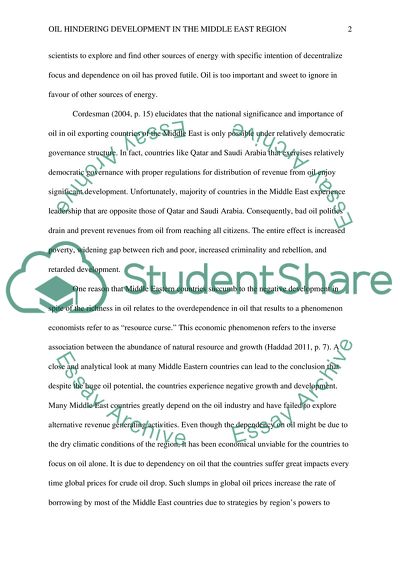Cite this document
(“Oil Is Hindering Development In the Middle East Region Essay”, n.d.)
Oil Is Hindering Development In the Middle East Region Essay. Retrieved from https://studentshare.org/social-science/1670759-oil-is-hindering-development-in-the-middle-east-region
Oil Is Hindering Development In the Middle East Region Essay. Retrieved from https://studentshare.org/social-science/1670759-oil-is-hindering-development-in-the-middle-east-region
(Oil Is Hindering Development In the Middle East Region Essay)
Oil Is Hindering Development In the Middle East Region Essay. https://studentshare.org/social-science/1670759-oil-is-hindering-development-in-the-middle-east-region.
Oil Is Hindering Development In the Middle East Region Essay. https://studentshare.org/social-science/1670759-oil-is-hindering-development-in-the-middle-east-region.
“Oil Is Hindering Development In the Middle East Region Essay”, n.d. https://studentshare.org/social-science/1670759-oil-is-hindering-development-in-the-middle-east-region.


